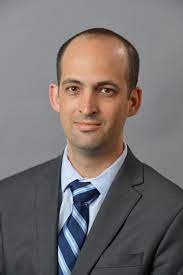Project title: Hypoxia Onco-metabolic Drivers in Pancreatic and Small Intestine NET
Amit Tirosh, MD Sheba Medical Center

- Status: Completed
- Year(s): 2021
- Grant Type: Pilot
- Research Type: Translational
- Primary Tumor Site: Multiple
- Area of Inquiry: Pro-oncogenic drivers in NET
Description
Tirosh and his team will use cutting-edge approaches to characterize the hypoxia-related metabolic drivers to better understand pancreatic NETs (pNETs) and pheochromocytoma development.
What question will the researchers try to answer?
Dr. Tirosh aims to elucidate whether a false sense of low oxygen levels (pseudohypoxia) in neuroendocrine tumor cells’ microenvironment drives cancer progression.
Why is this important?
Researchers do not yet fully understand the cause for multiple small intestine NETs and the drivers for developing NETs in other sites in the body, such as the pancreas.
What will researchers do?
Dr. Tirosh and his team characterized the metabolic compounds (metabolome) generated by the tumor cells and their surrounding tissues. After identifying a compound that may be a cancer-promoting driver, they will now explore the possible mechanism by which it affects the tumor cells’ progression and suppresses the anti-tumoral immune response.
How might this improve the treatment of NETs?
Identifying compounds that drive tumor initiation and progression and understanding how these compounds are being generated may lead to targeted intervention.
What is the next step?
If Dr. Tirosh’s hypothesis proves correct, they aim to assess the utility of targeted interventions in laboratory NET models, ultimately aiming to add another treatment path for the current management strategies for patients who have NETs.
Outcomes:
Thanks to the NETRF grant, we were able to investigate the contribution of a false sense of lack of oxygen (pseudohypoxia), in neuroendocrine tumor cells, on their biological properties. We found that pseudohypoxia increases the metabolism of specific compounds, that might bind to the tumor cells, and affect their tendency to multiply and progress. Through a series of advanced tissue processing techniques, and advanced computational analyses, we have strengthened our hypothesis, and are able to move forward and investigate possible medical interventions that might inhibit the pro-cancerous effect of these metabolites.
Additional Details
- City: Ramat Gan
- Country: Israel
- Grant Duration: 1 year
DISCLAIMER
NETRF funds laboratory research to understand the development of neuroendocrine tumors and translational research to explore new concepts in treatment. Research grant descriptions and research updates from NETRF are not intended to serve as medical advice. It can take years for research discoveries to be fully validated and approved for patient care. Always consult your health care providers about your treatment options.
